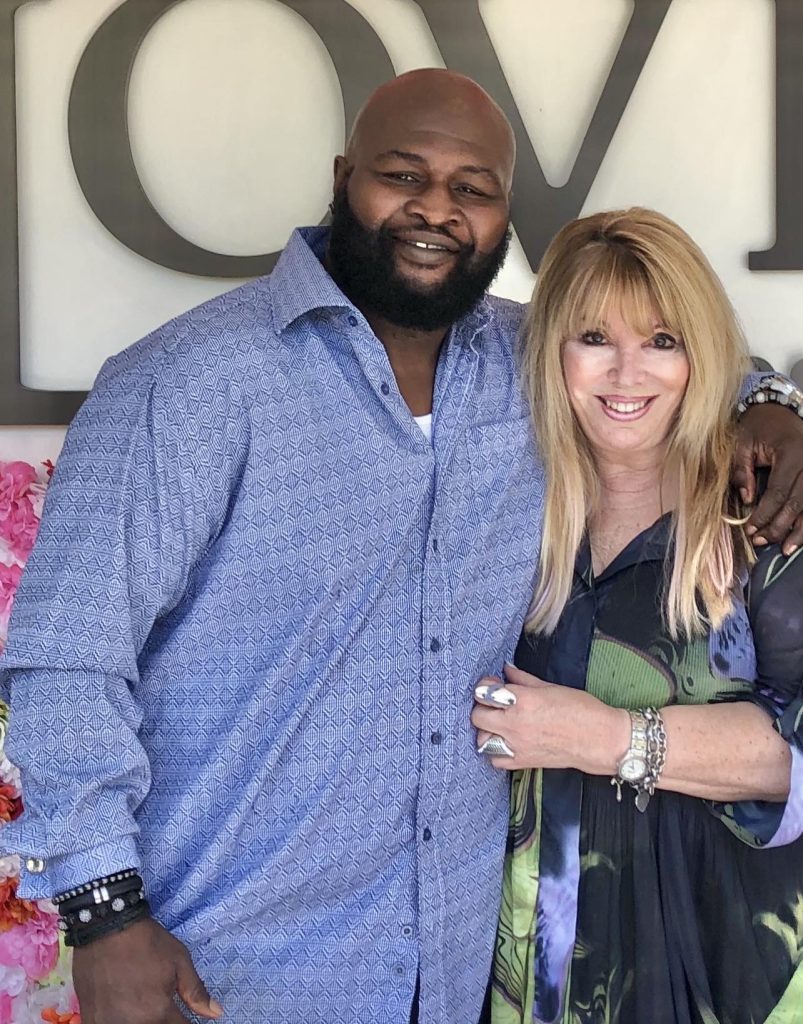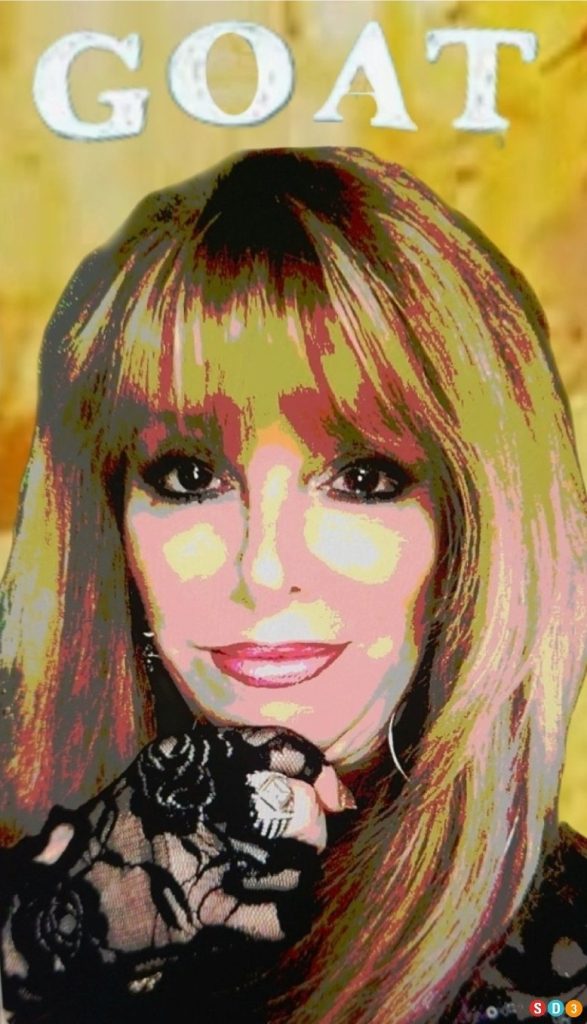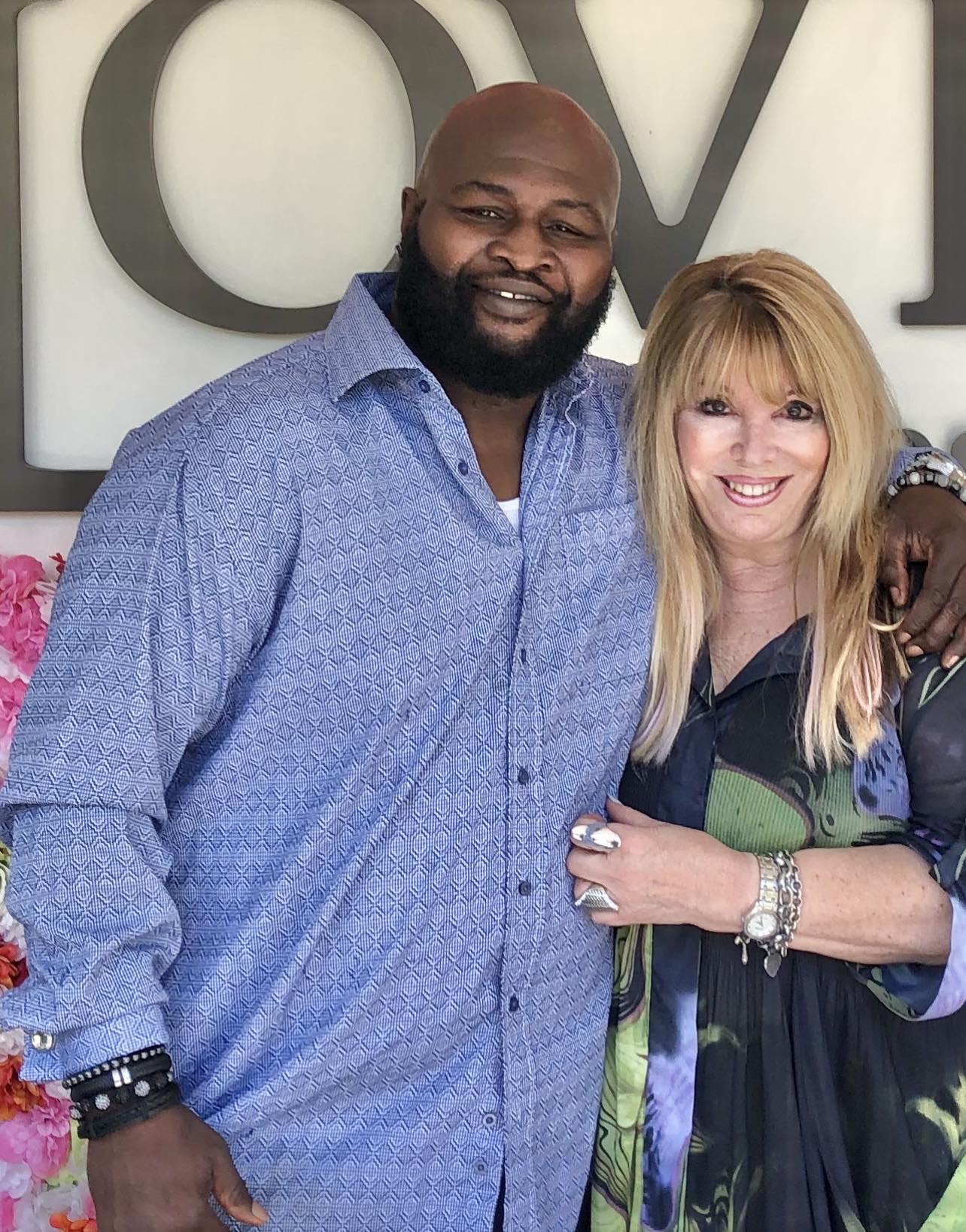Posted on 02/05/2024
By Derek Brantley
Jackie Kaplan Kallen faced a barrage of stares, snickers, and insults when she first set foot in a boxing gym in the 1970s. She endured the taunts while becoming the manager of one of the all-time great middleweights and super middleweights, James Toney, and rose to become one of the top figures in the sport. On December 7th, 2023 she became the first female manager to be elected into the International Boxing Hall of Fame (IBHOF).

Her pioneering career was powered by relentless drive and a deep love for boxing. Often referred to as the “First Lady of Boxing,” Kallen was accustomed to derisive remarks from many, including boxing writers who at first dismissed her as a “dumb blonde.” Some promoters underestimated her, making cutting and unflattering comments. While none were overtly horrible, Kallen faced a stream of annoying, microaggressive remarks suggesting her place was in the kitchen or beauty salon—anywhere but near the ring.
“I was not exactly welcomed into the boxing community,” Kallen said.
Despite the challenges, she pursued her vision, passion, and mission to become a successful boxing manager and promoter. She reached the top, earning prestigious accolades such as:
● The ‘Michigan Jewish Sports Hall of Fame’ in 1997.
● The ‘Aileen Eaton Award’ for Lifetime Achievement from the ‘World Boxing Hall of Fame’ in 2007.
● The ‘International Women’s Boxing Hall of Fame’ in 2016.
● She will be inducted into the ‘IBHOF’ in Canastota, N.Y. on June 9th, 2024.
Road To Recognition
James Toney was Kallen’s first champion, but their relationship extended beyond that. Jackie was the first to predict that Toney would go down as ‘one of the all-time greats’.
“The first time I had a world champion that was my own fighter was a wonderful first because nobody thought I could do it,” she said.

James Toney had all the makings of a Mike Tyson 2.0, known for their wild natures, anger towards the world, and incredible boxing talent. However, unlike Tyson, who often seemed a reluctant fighter, Toney relished the thrill of the fight, born to fight as he often said.
His mother, Sherrie, first took him to a boxing gym at age 11, but it wasn’t until he was older that he began to take the sport seriously. As a teenager, Toney found himself in trouble, dealing drugs and getting into fights. His amateur record of 33-2, marked by a fearsome knockout ratio, earned him the moniker ‘Lights Out.’ Even as a professional, trouble seemed to loom nearby; after his seventh fight, his manager and part-time street pharmacist, Johnny ‘Ace’ Smith, was killed in a drive-by.
By early 1989, Toney was floundering, managerless, and his anger was unchecked, leading to incidents that put his hands and future at risk. Kallen, then a publicist for the Kronk Gym and managing two fighters, noticed Toney during a sparring session.
“He stood out because he was so mean,” Kallen recalls. “He got into the ring to spar, and it was like a championship fight. He had something to prove every day.”
Toney asked Kallen to manage him, and she accepted.
Being managed by Kallen was akin to being adopted into a family. Despite it’s inherit risk, teaming up with Kallen gave Toney the supportive structure he so desperately needed.
Kallen admired Toney’s perfectionist side and gambled on his talent.
“With James Toney, my strategy was to keep him busy – – fighting as often as possible to keep him sharp and motivated. I also tried to elevate his competition as much as possible with each fight so that his skill level would grow, and he would be challenged. I’ve always felt that to be the best you need to beat the best, so I don’t believe in padding a record with easy wins all the way up to a title fight.”
Daring to be great
On May 10, 1991, Kallen matched Toney with a 20-to-1 favorite named Michael Nunn. She accepted the fight despite it being held in Nunn’s hometown of Davenport, Iowa. Nunn underestimated Toney, mocking him at a press conference and poking him in the face at the weigh-in.
Nunn was the IBF and lineal middleweight champion, ranked in the top five of the pound-for-pound listings. The fight was widely seen as a mere formality, with Toney considered a massive underdog.
The IBF fifth-ranked contender, Toney declared he would “pressure him until he has to fight.”
Nunn was leading comfortably through the first 10 rounds when, a minute into the 11th round, he inexplicably dropped his hands. Toney capitalized with a textbook left hook. Nunn went down, and a new IBF Middleweight Champion was crowned.
“He’s got to be a helluva fighter to do what he did to my guy,” said the legendary Angelo Dundee, Nunn’s trainer.
Until Toney defeated Nunn, Kallen had struggled for recognition.
“I remember trying to get the late promoter Cedric Kushner to feature James Toney on one of his cards. He basically laughed me off and didn’t pay much attention to anything I said about James’ potential.
Later, after we signed with Bob Arum and started winning significant fights, Kushner apologized for not taking me seriously and expressed regret for not signing James.”
I took fights for my fighters that others advised against. I believed in their ability to win after studying their opponents and comparing their styles, determination, and readiness to do whatever it takes to win.”
To show his appreciation, Toney would lavish Kallen with gifts such as clothes, jewelry, and even wore the famous Star of David on his trunks as a tribute.
Kallen’s ambitious approach with Toney persisted.
In July 1994, Toney scored a knockout against Charles Williams in the 12th and final round, paving the way for his fight with the undefeated 1988 Olympic silver medalist, Roy Jones Jr.
That September, promoter Bob Arum officially announced the highly anticipated title fight between the two undefeated fighters. Toney, with a record of 44–0–2 (29 KOs), entered the bout as the IBF super middleweight champion, having claimed the title from Iran Barkley on February 13, 1993, and having defended it three times.
Jones, with a record of 26–0 (23 KOs), had been the IBF middleweight champion since defeating Bernard Hopkins on May 22, 1993. However, he had only defended the title once before vacating it to move up in weight so he could challenge Toney.
Both fighters were at the pinnacle of the sport—Toney was ranked number two in the pound-for-pound rankings, while Jones was number three. Only then-WBC welterweight champion Pernell Whitaker was ranked ahead of them.
Sugar Ray Leonard called the matchup the “Leonard vs. Hearns” of the generation.
Both Jones and Toney turned down pre-arranged purses beforehand, $2 million and $2.5 million respectively, opting instead for a share of the pay-per-view revenue. TVKO sold the event at $29.95 per viewing, with Toney set to make 45 percent and Jones 35 percent. It was later reported that the event garnered around 300,000 buys, amounting to just under $9 million. The fighters’ decision to reject the original offers proved financially astute.
“We had a very large contract on the table with HBO had James won the Roy Jones Jr. fight,” said Kallen.
Once the contest was underway, Toney showcased flashes of his brilliance, but the fight was largely one-sided over the 12 rounds. Jones was awarded the unanimous decision with lopsided scores of 119-108, 118-109, and 117-111.
“There was a lot on the line, and the same offer was there for Jones. As it turned out, Jones was the better man that night, and unfortunately, it affected my relationship with James at that time. I think the first loss is always the hardest, and he was devastated,” Kallen reflected.
The showdown between Toney and Jones will be remembered in the annals as a battle featuring two all-time great (ATG) fighters, each with one of the most distinguished legacies of the past quarter-century.
During her career, Kallen has managed and promoted over 40 fighters, many of whom have become world champions or contenders. In addition to Toney, she managed the likes of Thomas Hearns, Bronco McKart, and Tarick Salmaci. She has also been instrumental in creating opportunities for female boxers such as Laila Ali, Christy Martin, and Mia St. John.
Kallen fearlessly carved out a place for herself and her fighters.
Under Kallen’s guidance, Toney reached extraordinary heights, becoming a multiple-time world champion across different weight divisions. Their success story has elevated Kallen’s reputation as an innovator, earning respect from both her peers and the boxing community at large.
Destiny’s Kallen
Kallen’s contributions to the sport extend beyond her partnership with Toney.
She played an instrumental role in reviving the career of legendary boxer Thomas “Hitman” Hearns, guiding him to victories and ensuring his place in boxing history. Kallen’s ability to recognize potential, negotiate advantageous deals, and provide unwavering support cemented her status as one of the most influential figures in boxing management.
Kallen currently manages an outstanding young man that she believes in her heart will soon follow in the footsteps of Thomas “Hit Man” Hearns and James “Lights Out” Toney and add the title “World Champion” to his name.
MykQuan Williams,(19-0-2) The 25 year old Connecticut man now becomes part of the conversation at 140 pounds following WBA regional title. The new Super lightweight Champion Williams pulled off the upset against the undefeated Luis Feliciano on January 17th, 2024.
Kallen is far more than just a boxing manager and promoter. Her lifestory was the inspiration for the 2004 film, “Against the Ropes“ starring Meg Ryan. The film portrays Kallen as a trailblazer in a industry where women were far and few between. She overcomes various obstacles to achieve her goals.
Television credits include being a regular on the first season of NBC’s “The Contender“ with Sylvester Stallone, where she was a boxing advisor and manager on the reality TV series. She mentored the contestants with her expertise and guidance, helping them improve their skills and succeed in the boxing industry.
A former writer and author Kallen has also penned two books. “Hit Me With Your Best Shot,” a 2008 self-help book sharing her personal challenges and triumphs in boxing and imparting wisdom, and “Between the Ropes,” a 2006 memoir.
Passionate about writing since age nine, Kallen embraces the creative journey of storytelling and has expressed her love for the craft throughout her career. With two books already showcasing her varied interests, she is now working on a third book, yet to be titled, which focuses on aging gracefully and optimizing life’s later stages.
Kallen shared which qualities led to her success and gave her the ability to provide sage counsel to others.
“I am strong and confident. I think we all have the potential to achieve greatness. It starts with a positive attitude, then preparation and information. You have to be knowledgeable about your chosen field. You also need passion. Passion makes everything exciting. Love what you do. Don’t listen to the critics. They don’t know your situation. Don’t ruin your relationships. You will meet the same people throughout your career. Listen to people. You can learn a lot from their perspectives and emotions. Don’t be arrogant or insensitive. There are always two sides to every story. Smile and be kind. People like happy people.” she replied.
Today, she resides in West Bloomfield, MI, where she remains active in boxing management, writing, motivational speaking, and film production.
Kallen’s exceptional career is rightfully recognized by her prestigious induction into the International Boxing Hall of Fame (IBHOF), which acknowledges her significant contributions and solidifies her legacy in boxing history.
When asked about this IBHOF milestone, Kallen reflected upon its significance, and all she has achieved.
“That will be the pinnacle achievement because it’s lasting. I will forever be the first female boxing manager inducted. That makes me very proud.”
